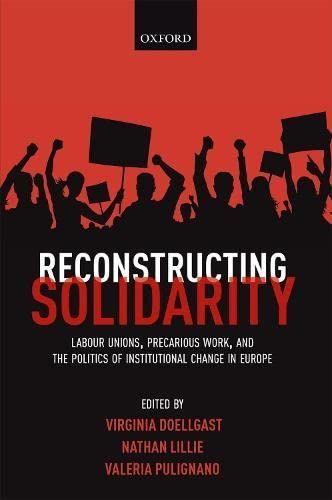
Reconstructing Solidarity Labour Unions, Precarious Work, and the Politics of Institutional Change in Europe
"Work is widely thought to have become more precarious. Many people feel that unions represent the interests of protected workers in good jobs at the expense of workers with insecure employment, low pay, and less generous benefits. Reconstructing Solidarity: Labour Unions, Precarious Work, and the Politics of Institutional Change in Europe argues the opposite: that unions try to represent precarious workers using a variety of creative campaigning and organizational tactics.00Where unions can limit employers' ability to 'exit' labour market institutions and collective agreements and build solidarity across different groups of workers, this results in a virtuous circle, establishing union control over the labour market. Where they fail to do so, it sets in motion a vicious circle of expanding precarity based on institutional evasion by employers. Exploring the struggle of the unions against the expansion of precarious work in Europe, Reconstructing Solidarity explains the importance of how unions build, or fail to build, inclusive worker solidarity. It uses a diverse range of comparative case studies to describe the struggles of workers and unions in industries such as local government, music, metalworking, chemicals, meat-packing, and logistics, to argue against the thesis that unions act primarily to protect labour market insiders at the expense of outsiders."--Back cover.